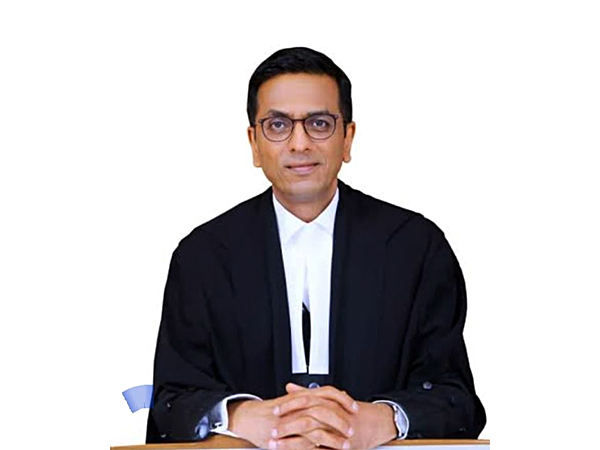
His mission is to have a modern and an equal judiciary where district judiciary is treated not as subordinates but as equals and technology can be used to make the working of the Supreme Court more transparent and objective, Chief Justice of India (CJI) Dhananjaya Y Chandrachud said on Monday.
CJI spoke on the challenging reality facing the nation’s district judges at a felicitation event held by the Supreme Court Bar Association (SCBA) on Monday. He also stated, “We should work towards a modern judiciary and an equal judiciary.”
Stating that “If we have to change, we have to change the face of district judiciary first and foremost,” he began by dubbing the expression “subordinate judiciary”, used commonly while referring to district judiciary as part of a “colonial mindset”.
“We have fostered a culture of subordination… A great deal has to be done not only in terms of infrastructure of our district judiciary which is extremely important for which we have to lay the foundation stones today. But we must have to also change our mindset as superior court judges of SC and high courts of how we look at our district judiciary and how we perceive of them.”
A subordinate IAS officer does not view his superior with a sense of inferiority, Justice Chandrachud noted when comparing the executive and judiciary in this regard.
He referred to occasions where it was customary for district judges to rise and even serve food when high court judges were seated at the table for having meals, saying “That is not so in judiciary.”
In another instance, Justice Chandrachud saw district judges who came to brief him in vigilance cases would stand while he was an administrative judge.
“I would go out of the way and say unless you sit, unless you sit with us on the table, I won’t have discussion or we won’t have our food,” CJI added.
He cited another incident in which a district judge remained stationed at the state border’s entry and departure ports whenever the chief justice of a high court had to travel between states.
“All this has to change. We have to inculcate a sense of self-worth in our district judiciary,” Justice Chandrachud said for which he asked the judges of the Supreme Court and high courts to first realise that district judiciary is the “core” and the “cornerstone” of our judicial system.
Speaking about his transition from the bar to the bench, Justice Chandrachud reflected on the lessons he had picked up from the leading members of the bar and the sitting judges who had influenced his career.
Initially when I came to Supreme Court, I realised how uninitiated I was to law. I learnt at the feet of the greats of the bar and bench.”
Justice Chandrachud said, “I am not here to do miracles. I know that challenges are high, expectations are great. I am deeply grateful for your sense of faith.” He said his motto every day is to strive to make the world a better place every single day.
Regarding a contentious case listing issue where the registry frequently delays case listing while some crucial cases are listed out of order,CJI said, “We need to make listing transparent and objective and use technology to eliminate human interface in listing as all discretion tends to be not used properly.”
The new CJI felt that a standard operating procedure (SOP) should be established to institutionalise the process of listing of cases so that it does not depend on who becomes CJI, in light of the concrete improvements implemented by his predecessor, former CJI UU Lalit.
He also referred to judicial vacancies as a “major problem,” noting that 30% of sanctioned high court positions and 25% of district judicial positions are still unfilled.